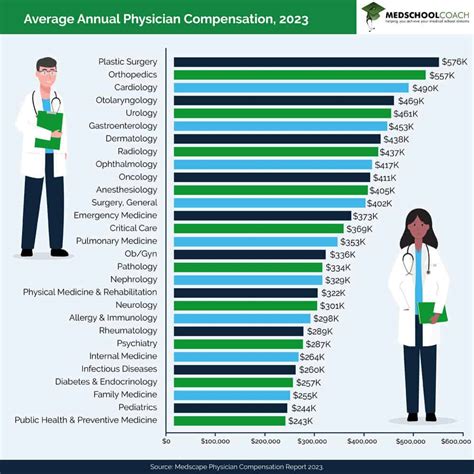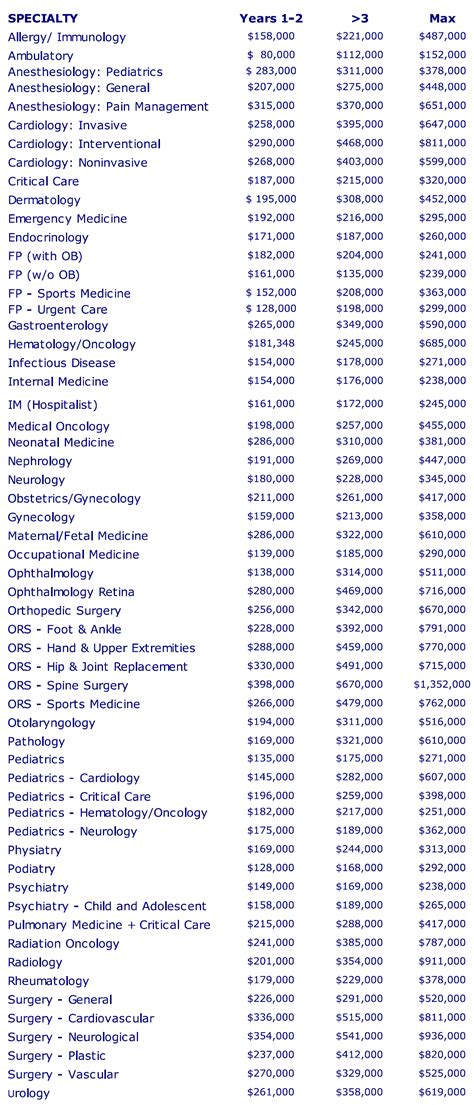For those exploring a career in healthcare administration, the term "MGMA salary data" is the gold standard. It represents a wealth of information on compensation for one of the most critical roles in healthcare: the Medical Practice Manager. This career path offers not only the chance to make a significant impact on patient care and business operations but also a strong earning potential, with top professionals earning well into the six-figure range.
This article will break down the salary expectations for Medical and Health Services Managers, often called Practice Managers or Administrators, using MGMA as our benchmark and supplementing with data from other authoritative sources. We'll explore the factors that shape your paycheck, from where you live to the type of practice you manage, giving you a clear roadmap for your career potential.
What Does a Medical Practice Manager Do?

Before diving into the numbers, it's essential to understand the role. A Medical Practice Manager is the administrative and operational backbone of a physician's office, clinic, or medical group. They are the business leaders who ensure the practice runs smoothly, efficiently, and profitably, allowing physicians and clinical staff to focus on patient care.
Key responsibilities include:
- Financial Management: Overseeing billing, collections, budgeting, and financial reporting.
- Human Resources: Hiring, training, and managing administrative and clinical support staff.
- Operations: Managing patient scheduling, workflow efficiency, and facility maintenance.
- Compliance: Ensuring the practice adheres to complex healthcare regulations, including HIPAA and other federal and state laws.
- Strategic Planning: Working with physician-owners or corporate leadership to set goals for growth, patient acquisition, and technology adoption.
In essence, they are multitasking problem-solvers who blend business acumen with a deep understanding of the healthcare landscape.
Average Medical Practice Manager Salary

The compensation for a Medical Practice Manager is robust, reflecting the role's complexity and importance. While the Medical Group Management Association (MGMA) provides the most detailed, granular reports (often behind a paywall), we can establish a highly accurate salary picture using publicly available, authoritative data.
According to the U.S. Bureau of Labor Statistics (BLS), the median annual wage for Medical and Health Services Managers was $110,680 as of May 2023. This is a strong national benchmark.
Data from top salary aggregators provide a more detailed range:
- Salary.com reports that the average Medical Practice Manager salary in the United States is around $121,500, with a typical range falling between $104,100 and $142,300.
- Payscale shows a median salary of approximately $77,000 for a "Practice Manager," but notes that this can climb significantly higher with experience and that total pay, including bonuses and profit sharing, can reach over $110,000. The variation often depends on the size and complexity of the practice included in the data set.
- Glassdoor places the total average pay for a "Healthcare Administrator" at around $95,000, with a likely range between $72,000 and $126,000.
This data reveals a wide salary band, which is heavily influenced by the key factors discussed below. Entry-level administrators might start closer to the $70,000 range, while senior managers in large, complex practices can easily command salaries exceeding $150,000.
Key Factors That Influence Salary

Your earning potential is not a single number but a spectrum. Understanding what drives compensation is crucial for maximizing your income throughout your career.
### Level of Education
Education lays the foundation for your career and directly impacts your starting salary and long-term growth.
- Bachelor’s Degree: A bachelor's in Healthcare Administration, Business, or a related field is typically the minimum requirement for entry-level positions.
- Master’s Degree: A Master of Healthcare Administration (MHA) or Master of Business Administration (MBA) with a healthcare concentration is increasingly the standard for senior-level positions. A master's degree can significantly boost earning potential and is often a prerequisite for managing larger, more complex medical groups or hospital-owned practices. Earning a professional certification, such as the Certified Medical Practice Executive (CMPE) offered by MGMA, also demonstrates expertise and can lead to higher pay.
### Years of Experience
Experience is one of the most significant determinants of salary. As you gain expertise in navigating the challenges of practice management, your value to an organization increases.
- Entry-Level (0-3 years): Professionals in this stage are learning the ropes of billing, HR basics, and daily operations. Salaries typically fall in the lower end of the national range, from $65,000 to $85,000.
- Mid-Career (4-10 years): With a proven track record, these managers can handle more complex financial and strategic tasks. Their salaries often align with or exceed the national average, from $85,000 to $120,000.
- Senior/Executive-Level (10+ years): Senior managers, especially those in Chief Operating Officer (COO) or Chief Executive Officer (CEO) roles within large medical groups, have deep expertise. Their compensation reflects this, often exceeding $140,000 and reaching well into the high six figures depending on the organization's scale.
### Geographic Location
Where you work matters immensely. Salaries are often adjusted to the local cost of living and the demand for skilled administrators in a specific market. According to BLS data for Medical and Health Services Managers, some of the top-paying states include:
- New York: Average annual wage of $170,180
- District of Columbia: Average annual wage of $169,380
- Massachusetts: Average annual wage of $154,670
- Washington: Average annual wage of $150,710
- California: Average annual wage of $146,870
Conversely, states with a lower cost of living may offer salaries below the national average but provide comparable purchasing power.
### Company Type
The type and size of the medical practice are major salary drivers. MGMA data excels at breaking down compensation by this factor.
- Small, Physician-Owned Practices (1-5 physicians): These roles often come with broader responsibilities but may have tighter budgets. Salaries tend to be on the lower end of the spectrum.
- Medium to Large Multi-Specialty Groups: As practices grow in size and complexity, so does the manager's salary. Managing dozens of providers and staff across multiple specialties requires a higher level of skill.
- Hospital-Owned Medical Groups: These practices are often part of a large health system. Managers here typically earn more due to increased reporting requirements, corporate structure, and larger budgets. The compensation packages are often more robust and may include significant performance bonuses.
### Area of Specialization
The medical specialty of the practice you manage can also influence your pay. High-revenue, procedurally-driven specialties often require managers with specialized knowledge of complex billing codes and high-cost equipment. Consequently, they tend to pay more. For example, managing a practice focused on:
- Surgical Specialties (e.g., Orthopedics, Cardiology, Neurosurgery)
- Oncology
- Radiology
These typically command higher administrator salaries than primary care or family medicine practices, due to the higher revenue streams and greater operational complexity involved.
Job Outlook

The future for Medical and Health Services Managers is exceptionally bright. The BLS projects that employment in this field will grow by 28% from 2022 to 2032, which is vastly faster than the average for all occupations.
This explosive growth is driven by several factors:
- The large baby-boomer population is aging, increasing the demand for healthcare services.
- Medical treatments and technologies are becoming more complex, requiring skilled managers to oversee their implementation and financing.
- A widespread focus on healthcare efficiency and data-driven management creates a need for business-savvy leaders.
This high demand ensures strong job security and continued upward pressure on salaries for qualified professionals.
Conclusion

A career as a Medical Practice Manager is a rewarding path for those who thrive at the intersection of business and healthcare. The salary potential is substantial and highly dependent on a clear set of factors. To maximize your earning potential, focus on a strategic approach:
- Invest in Education: A master's degree and professional certifications like the CMPE can open doors to top-tier positions.
- Build Experience: Seek out roles in progressively larger and more complex practice settings.
- Be Strategic About Location: Consider high-demand, high-paying metropolitan areas if a top-dollar salary is your primary goal.
- Specialize: Gaining expertise in managing high-revenue specialties can provide a significant financial edge.
With a phenomenal job outlook and a clear path to a six-figure salary, a career in medical practice management offers a stable, impactful, and financially rewarding future.
